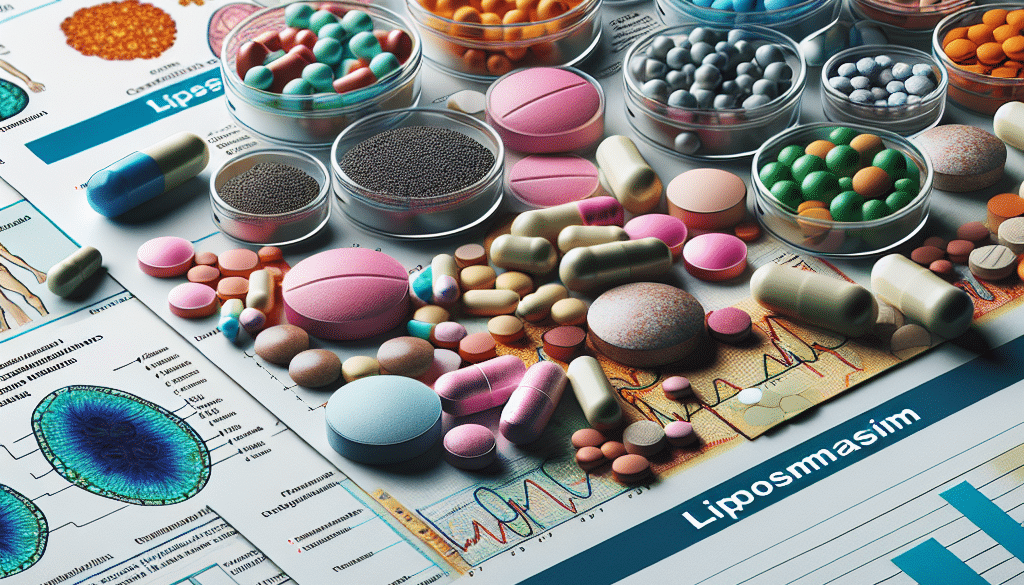Can Liposma Be Diagnosed with Medicines?
-
Table of Contents
- Liposoma Diagnosis and Medicinal Interventions: Insights and Approaches
- Understanding Liposoma
- Current Diagnostic Methods for Liposoma
- Can Medicines Aid in the Diagnosis of Liposoma?
- Role of Medicines in Treating Liposoma
- Chemotherapy and Targeted Therapy
- Emerging Medicinal Interventions in Liposoma Care
- Case Studies and Statistics
- Conclusion: The Interplay of Diagnosis and Treatment
- ETChem’s Protein Products: Enhancing Cancer Care
Liposoma Diagnosis and Medicinal Interventions: Insights and Approaches

Liposoma, often referred to as liposarcoma, is a type of cancer that arises in fat cells in deep soft tissue, such as that inside the thigh or in the retroperitoneum. It is a malignant tumor, which means it can grow and spread to other parts of the body. Diagnosing liposoma is crucial for effective treatment and management. This article explores the role of medicines in the diagnosis of liposoma, the current approaches, and the potential future developments in this field.
Understanding Liposoma
Liposoma is a rare cancer, and its diagnosis can be challenging due to its deep-seated nature and the variability in its presentation. Symptoms may include a palpable mass, pain, or functional impairment, depending on the tumor’s location. However, these symptoms are not exclusive to liposoma and can be associated with various other conditions, making accurate diagnosis imperative.
Current Diagnostic Methods for Liposoma
Diagnosis of liposoma typically involves a combination of imaging studies and biopsy. Imaging studies such as MRI, CT scans, and ultrasound are used to visualize the tumor’s size, location, and extent. A biopsy, where a sample of the tumor is removed and examined under a microscope, is essential for confirming the diagnosis and determining the type of liposarcoma.
Can Medicines Aid in the Diagnosis of Liposoma?
While medicines are not used to diagnose liposoma directly, they can play a supportive role in the diagnostic process. For example, contrast agents used in MRI and CT scans can help delineate the tumor more clearly. Additionally, medications may be used to manage symptoms or complications that arise during the diagnostic phase.
Role of Medicines in Treating Liposoma
Once liposoma is diagnosed, treatment often involves surgery to remove the tumor. In some cases, radiation therapy or chemotherapy may be used to shrink the tumor before surgery or to target any remaining cancer cells post-surgery. Medicines, such as chemotherapy drugs, play a crucial role in these treatment protocols.
Chemotherapy and Targeted Therapy
Chemotherapy uses drugs to destroy cancer cells or stop them from growing. In the case of liposoma, chemotherapy may be used when the tumor is not resectable, has metastasized, or has a high risk of recurrence. Targeted therapy drugs work by targeting specific genes, proteins, or the tissue environment that contributes to cancer growth and survival. These drugs can be an option for certain types of liposarcoma that have specific genetic changes.
Emerging Medicinal Interventions in Liposoma Care
Research is ongoing to find new medications that can improve the diagnosis and treatment of liposoma. Molecular and genetic testing are becoming increasingly important in the field of oncology, allowing for more personalized medicine approaches. These tests can help identify specific mutations in liposarcoma cells that may be targeted by new drugs.
Case Studies and Statistics
Several case studies have highlighted the potential of targeted therapies in treating liposoma. For instance, drugs that inhibit the CDK4 pathway have shown promise in treating well-differentiated and dedifferentiated liposarcoma. Statistics show that the five-year survival rate for localized liposarcoma is around 90%, but this number drops significantly when the cancer has spread.
Conclusion: The Interplay of Diagnosis and Treatment
In conclusion, while medicines are not used directly to diagnose liposoma, they are integral to the treatment process and can indirectly aid in diagnosis by managing symptoms and complications. Advances in medical research continue to provide hope for more effective diagnostic tools and treatments, potentially improving outcomes for patients with liposoma.
ETChem’s Protein Products: Enhancing Cancer Care
ETChem’s range of protein products, including various types of collagen, can play a supportive role in cancer care. Collagen supplements may help improve the overall health and well-being of patients undergoing cancer treatment by supporting tissue repair and providing nutritional support. ETChem’s high-quality protein products are an excellent addition to the dietary regimen of patients looking to maintain strength and resilience during their treatment journey.
About ETChem:
ETChem, a reputable Chinese Collagen factory manufacturer and supplier, is renowned for producing, stocking, exporting, and delivering the highest quality collagens. They include marine collagen, fish collagen, bovine collagen, chicken collagen, type I collagen, type II collagen and type III collagen etc. Their offerings, characterized by a neutral taste, instant solubility attributes, cater to a diverse range of industries. They serve nutraceutical, pharmaceutical, cosmeceutical, veterinary, as well as food and beverage finished product distributors, traders, and manufacturers across Europe, USA, Canada, Australia, Thailand, Japan, Korea, Brazil, and Chile, among others.
ETChem specialization includes exporting and delivering tailor-made collagen powder and finished collagen nutritional supplements. Their extensive product range covers sectors like Food and Beverage, Sports Nutrition, Weight Management, Dietary Supplements, Health and Wellness Products, ensuring comprehensive solutions to meet all your protein needs.
As a trusted company by leading global food and beverage brands and Fortune 500 companies, ETChem reinforces China’s reputation in the global arena. For more information or to sample their products, please contact them and email karen(at)et-chem.com today.




